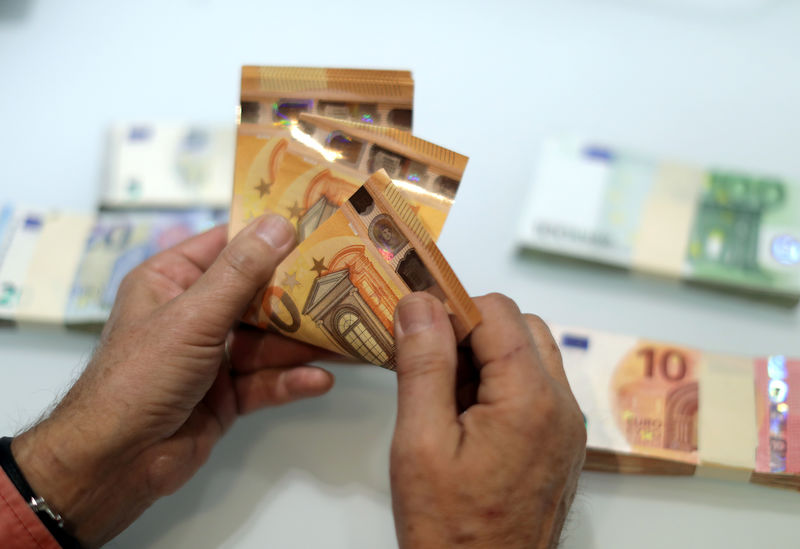By Daniel Leussink
TOKYO (Reuters) - Major currencies kept to tight ranges on Thursday as traders focused their immediate attention on the European Central Bank's (ECB) policy review, while the Australian and Canadian dollar languished near two-month lows.
Some traders expect the ECB will indicate a delay in raising rates until next year and the central bank will soon re-launch long-term bank loans to fight an economic slowdown.
The Aussie and the loonie hit their lows as investors trimmed holdings on growing expectations policymakers would leave interest rates alone for the time being or even lower them to counter their weakening economies.
The Bank of Canada (BoC) on Wednesday said there was "increased uncertainty" about the timing of future rate hikes as it held interest rates steady at 1.75 percent as expected.
The Canadian dollar fell as low as C$1.3457 after the release of the BoC's latest policy statement, its lowest against the greenback since Jan. 4. On Thursday, it was last at C$1.3443, unchanged on the day.
The Aussie was last at $0.7034, pulling up slightly after edging down to a fresh two-month low of $0.70205 early in the session.
Australian retail sales rose 0.1 percent in January, less than an expected 0.3 percent, data on Thursday showed.
The country's fourth-quarter economic growth had come in below expectations on Wednesday, reinforcing evidence of slowing domestic momentum and backing market expectations for a rate cut this year.
The dollar index, which measures the greenback against a basket of six key rivals, remained untraded on Thursday after ending Wednesday at 96.873.
Traders have remained bullish on the dollar in view of the continuing uncertainties over the United Kingdom's exit from the European Union and U.S.-China trade negotiations.
The dollar index has gained 1.1 percent over the last six trading sessions after hitting its lowest level since early February on Thursday last week.
Against the yen, the dollar was down 0.1 percent at 111.65 yen, but still not far off a recent peak of 112.135 hit on Tuesday, its strongest since Dec. 20.
The euro trod water at $1.1312, about 1.0 percent below a one-month high hit on Thursday last week.
"The market has already been pricing in that the economic growth in the euro zone isn't good," said Yukio Ishizuki, senior currency strategist at Daiwa Securities in Tokyo.
"Though I think there is a likelihood there may be a chance to their (ECB's) forward guidance, that also has been already priced to some extent," he said.
Investors were also looking to Friday's U.S. non-farm payrolls release for February for fresh indications of wage growth and labor market strength.
